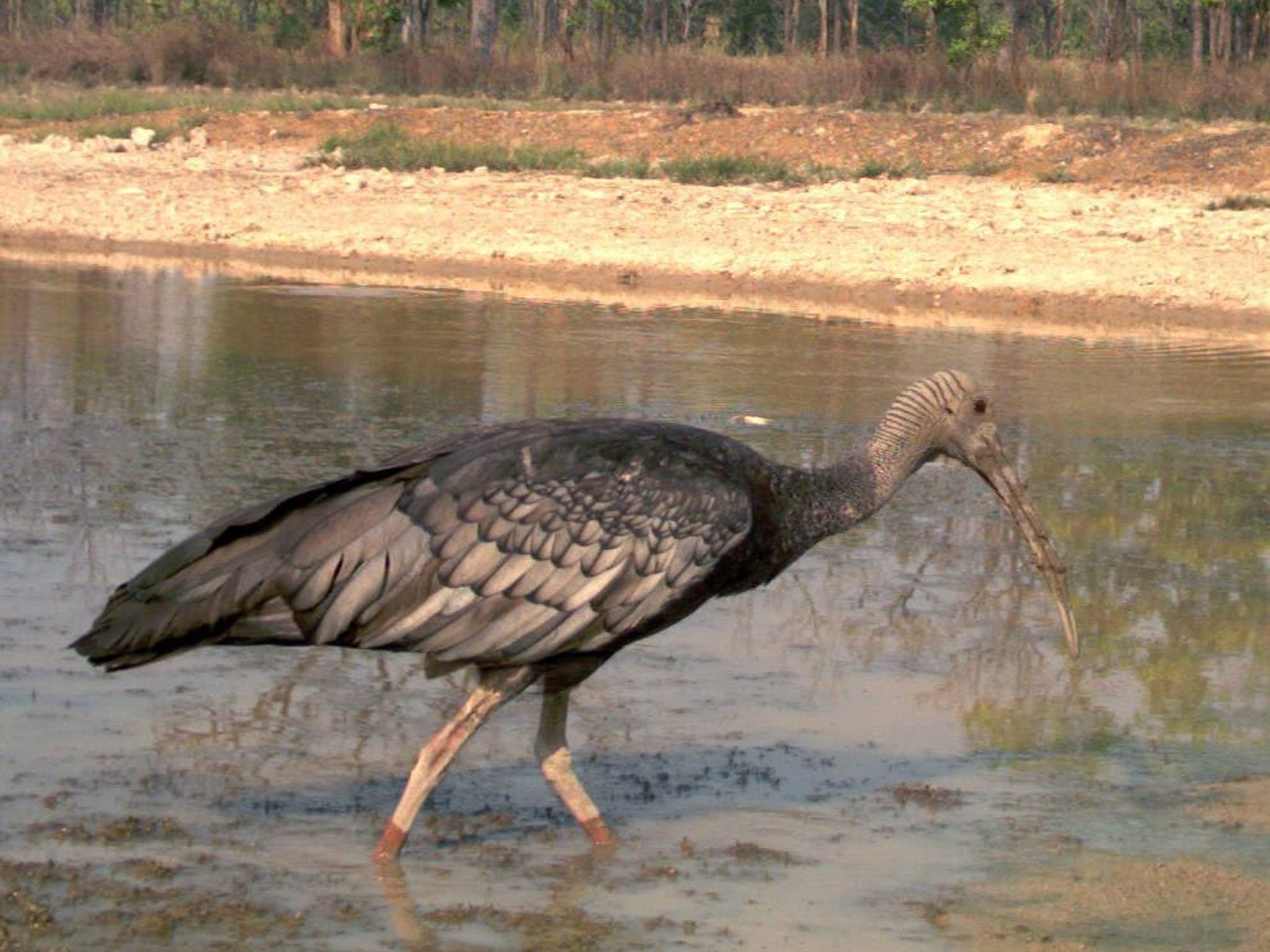Your support helps us to tell the story
From reproductive rights to climate change to Big Tech, The Independent is on the ground when the story is developing. Whether it's investigating the financials of Elon Musk's pro-Trump PAC or producing our latest documentary, 'The A Word', which shines a light on the American women fighting for reproductive rights, we know how important it is to parse out the facts from the messaging.
At such a critical moment in US history, we need reporters on the ground. Your donation allows us to keep sending journalists to speak to both sides of the story.
The Independent is trusted by Americans across the entire political spectrum. And unlike many other quality news outlets, we choose not to lock Americans out of our reporting and analysis with paywalls. We believe quality journalism should be available to everyone, paid for by those who can afford it.
Your support makes all the difference.There are believed to be only 345 giant ibis remaining in the wild, but there is hope for conservationists after a nest of the endangered species was discovered in a hitherto unknown habitat in north-eastern Cambodia.
The country is home to 90 per cent of the world’s giant ibis population, which continues to decline due to habitat loss and poaching.
The newly discovered nesting site was found by a farmer in Cambodia’s Stung Treng province last month, a few kilometres inland from the Mekong River, according to the World Wildlife Fund (WWF).
It is the first documented nesting site for the reclusive bird within the Mekong Flooded Forest, an important area of biodiversity.
“The discovery of the nest on is extremely significant because it provides hope for the species’ survival,” said Sok Ko, from WWF-Cambodia. Mr Ko and his team saw an adult giant ibis sitting on the nest with two eggs. The bird was placed on the red list of the International Union for Conservation of Nature in 1994 as critically endangered. But it was not until 2007 that Cambodia’s national bird was placed on the country’s own endangered list.
WWF has been working with villagers along the Mekong to protect nests. The bird is also found in Laos and Vietnam.

Join our commenting forum
Join thought-provoking conversations, follow other Independent readers and see their replies
Comments